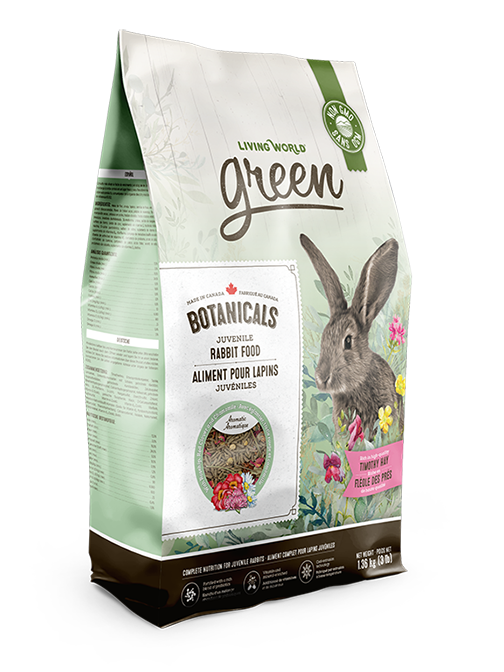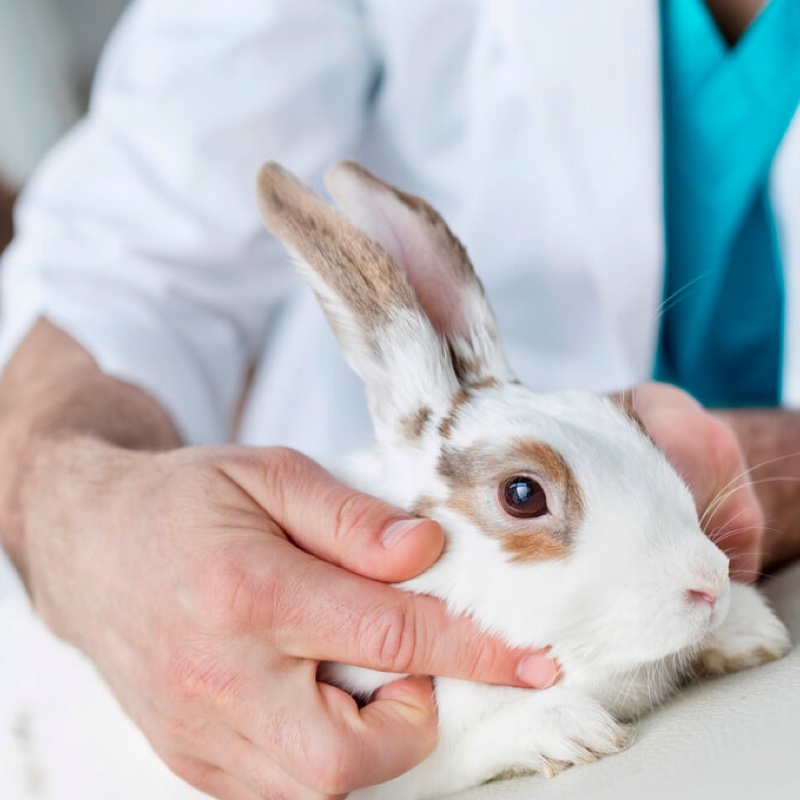 Botanicals Juvenile Rabbit Food
Botanicals Juvenile Rabbit Food

Companion rabbits are often overweight or obese, which can undoubtedly lead to serious health complications.
Rabbits over six months old can frequently become overweight. Therefore, try to establish healthy eating routines as early as possible. Exercise is also key as rabbits that are kept in their cages for long periods of time without any outside exercise are at a greater risk of becoming obese. Along with a lack of proper exercise, excessive feeding of treats and snacks will often lead to an overweight bunny.
An easy way to determine if your rabbit is maintaining a healthy weight is to run your hands just over your rabbit’s rib area, if it balloons out and you cannot feel its ribs, then chances are your rabbit has a weight problem. Some other signs to look for are difficulty breathing, the appearance of dandruff or flaky dry skin and a bunny that is lethargic. Your vet can also help you determine if your rabbit’s weight is a concern, so regular weight monitoring and routine veterinarian exams will ensure your pet is healthy. Maintaining a healthy lifestyle for your bunny is not complicated and can go a long way toward treating and preventing obesity.
To help ensure an ideal weight, offer your rabbit a daily, balanced diet that includes unlimited amounts of healthy hays and grasses, fresh leafy greens, fortified food appropriate for the life stage of your rabbit, healthy enrichment foods and occasional fruits and treats. When feeding pellets to an adult rabbit you should consider a Timothy based pellet rather than alfalfa. Young rabbis require a higher protein found in alfalfa. It is a good idea to use a measuring scoop so you will know the exact amount of pellets you are feeding.
Offering a lifestyle that promotes exercise will also play a pivotal role in maintaining a healthy weight. Your bunny’s habitat should be large enough to allow for a minimal amount of daily exercise in addition to the time spent out of the enclosure. Rabbits need activities designed to stimulate playtime and encourage exercise.
Not all toys need to be purchased – simple cardboard boxes, paper towel and toilet paper tubes can be used to hide food in, roll and toss around. It is essential to ensure your buying is getting adequate amounts of water each day. If your rabbit is not drinking enough water, over time it can develop intestinal issues and your rabbit may wind up with a condition known as gastrointestinal (GI) stasis or ileus which can be life-threatening. In order to keep track of much water is consumed every day, it is a good idea to train your rabbit to drink from a water bottle. Water should be changed daily and the bottle washed to prevent bacteria from forming. These simple measures to prioritize the health and fitness of your pet rabbit will go a long way toward keeping your pet healthy and happy for years to come.